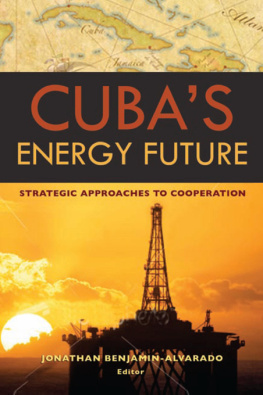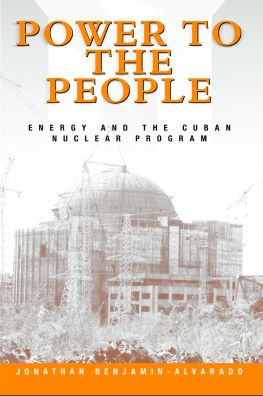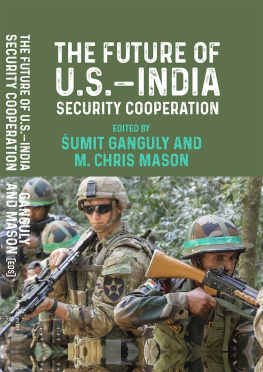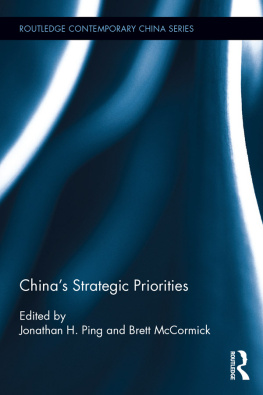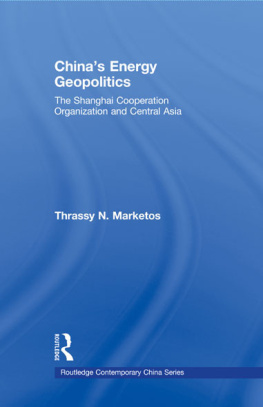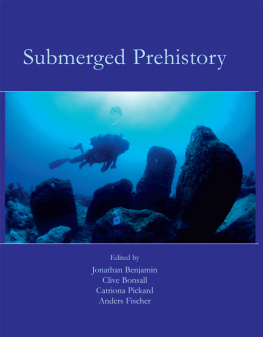Copyright 2010
THE BROOKINGS INSTITUTION
1775 Massachusetts Avenue, N.W., Washington, D.C. 20036
www.brookings.edu
All rights reserved. No part of this publication may be reproduced or transmitted in any form or by any means without permission in writing from the Brookings Institution Press.
Library of Congress Cataloging-in-Publication data
Cuba's energy future : a policy assessment and strategic approaches to cooperation / Jonathan Benjamin-Alvarado, editor.
p. cm.
Includes bibliographical references and index.
Summary: Examines what Cuba must do to ensure energy sustainability and self-sufficiency in order to secure its future, including advancing relationships with its neighbors, and discusses ways the island nation might seek greater cooperation with the United States in these endeavorsProvided by publisher.
ISBN 978-0-8157-0342-6 (pbk. : alk. paper)
1. Energy policyCuba. 2. United StatesForeign economic relationsCuba. 3. CubaForeign economic relationsUnited States. I. Benjamin-Alvarado, Jonathan. II. Brookings Institution.
HD9502.A4C92 2010
333.79097291dc22
2010030094
9 8 7 6 5 4 3 2 1
Printed on acid-free paper
Typeset in Minion
Composition by Circle Graphics
Columbia, Maryland
Printed by R. R. Donnelley
Harrisonburg, Virginia
Preface and Acknowledgments
P olicymakers, scholars, and analysts have pondered for nearly a half century this question: what would a Cuban government look like if it were fully recognized by the United States and engaged in robust economic relations with its large northern neighbor? While we've been waiting for an answer, intervening events, such as the end of the cold war and the peaceful transfer of power in Cuba to Fidel Castro's brother, have not prompted any change in the prevailing status quo. The question remains relevant because of the sustained power and allure that this strategically important island poses in a region rife with uncertainty, and where the stakes for regional progress, peace, and development rest in part with Cuba's own development. As the island nation seeks to capitalize on its new-found oil reserves and as the United States casts about for energy sources outside the Middle East, these two countries could come together in a manner inconceivable just five years ago.
This volume is an outgrowth of several events that have probed Cuba's energy past and future in depth, beginning with the 2006 annual meeting of the Association for the Study of the Cuban Economy (ASCE), where I served as discussant for a paper delivered by former oil executive Jorge R. Pin titled Energy: Cuba's Achilles Heel. I sat on a panel with Pin and Juan Belt, one of the Americas' leading electricity infrastructure analysts. After the meeting, I asked my ASCE colleagues if we couldn't continue to refine our respective analyses and present the findings at two Cuba-related conferences coming up in 2008. Both Pion and Belt agreed enthusiastically. Ron Soligo and Amy Myers Jaffe of the James Baker Institute at Rice University were added to broaden our analysis to include the prospects of energy demand in Cuba under varying scenarios.
At the second of these meetings, we met with Ambassador Vicki Huddleston (former head of the U.S. Interests Section in Havana and now with the Defense Department), then leading the Brookings project on U.S. Policy toward a Cuba in Transition with Ambassador Carlos Pascual (former vice president and director for Foreign Policy at Brookings and now U.S. ambassador to Mexico), to learn how our own efforts might contribute to the Brookings work.
Under the auspices of this Brookings Institution project, a group of distinguished academics, opinion leaders, and international diplomats had been brought together to seek pathways to a strong and effective U.S. policy toward Cuba. The group's final report concluded that the United States should adopt a policy of critical and constructive engagement, phased in unilaterally. After learning more of our work in the energy sphere, Huddleston, Pascual, and their colleagues working with Brookings readily agreed to publish our findings.
This volume, therefore, is an extension of the Brookings project's analysis by looking concretely at the strategic and material challenges posed by Cuba as a potentially ascendant, albeit mid-level, oil state, and how it might serve as a partner in strategic regional objectives, in terms of both national and energy security interests of the United States.
No book can be launched without committed contributors, and I would first like to thank Jorge Pin, Juan A. Belt, Ronald Soligo, and Amy Myers Jaffe. They represent an august body of experts on the subject of Cuban energy issues. Their collective efforts have made this volume an important contribution to the specifics of Cuban energy development and to the broader discussion of the possibility of a sober and objective dialogue and cooperation with the Cuban regime.
Our colleagues at the Brookings InstitutionCarlos Pascual, Vicki Huddleston, Ted Piccone, senior fellow and deputy director for Foreign Policy, and especially, Dra Beszterczey, former research assistant for the U.S. Policy toward a Cuba in Transition project, have been instrumental in coordinating our efforts and guiding us through the editorial process.
If the sharing of time and information by former and present officials of Cuba's energy-related bureaucracies is any indication of what the future of U.S.-Cuban relations might be like, our experience portends an honest, open, and mutually beneficial relationship. Time and again, we have been pleasantly surprised by the forthrightness of Cuban officials to discuss all facets of energy questions. It must be noted that without their cooperation and information sharing the depth of this analysis would be all but unreachable. In particular, I would like to thank Eloy Leon Gomez, Manuel Marrero Faz, Rafael Tenreyro Perez, Raul Perez de Prado, Juan Fleites Melo, Alfredo Curbelo Alonso, and Fidel Castro Diaz-Balart for support in helping us to understand the totality of the Cuban energy picture.
I have traveled widely throughout Latin America to collect data and information on Cuba's energy profile and have been in direct contact with Cuban officials representing all of the major actors in energy-related pursuits, including CITMA, the Cuban Ministry of Science, Technology, and the Environment; GEPROP, the Center for the Management of Prioritized Projects and Programs; MINBAS, the Cuban Ministry of Basic Industry; Unin Elctrica, Cuba's state electrical utility firm; Unin Cubapetrleo (Cupet), the Cuban national oil company; and the Cuban Council of State, the supreme ruling body in the Cuban government.
Here in the United States I owe a special debt of gratitude to Jorge Perez-Lopez, Damian Fernandez, and Mauricio Font for giving us the public forums that allowed us to distill our thinking and arrive at conclusions. There can be no doubt that the comments, suggestions, and criticism offered by our external readers, Charles Ebinger, Jorge Perez-Lopez, and Jorge Sanguinetty, made this book much more cogent and concise. I would also like to extend my gratitude to Casey Logan and John Preisinger, as well as Katherine Scott on the Brookings team, whose copyediting skills helped to make the chapters much more readable. I would also like to thank the Brookings Institution Press staff for making what at times is an arduous process into a highly professional and satisfying experience. From editing, to book cover design, to marketing, they deserve much credit for the presentation of the final product. That said, any errors, sins, and omissions are mine alone.

